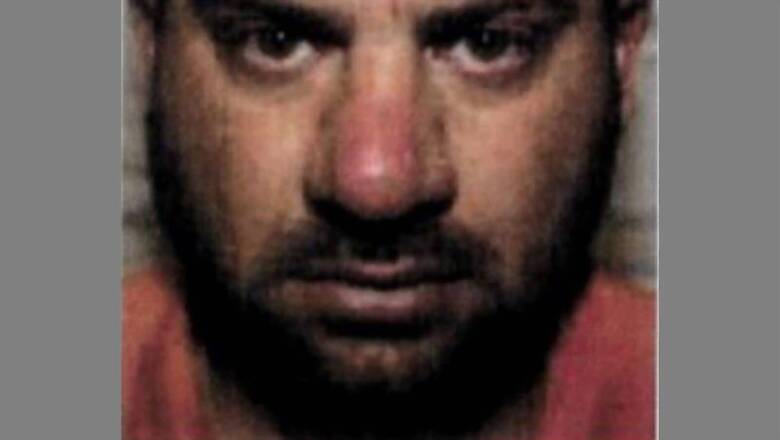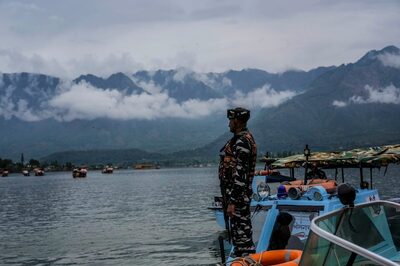
views
United States President Joe Biden on Thursday said the leader of the Islamic State group had been “taken off the battlefield” during a raid by US forces in Syria. ISIS leader Abu Ibrahim al-Hashimi al-Qurashi, also known as Amir Muhammad Sa’id Abd-al-Rahman al-Mawla or just al-Mawla, took over the “caliphate” in 2019 after the death of Abu Bakr al-Baghdadi, who named him the successor.
The meaning of the “caliph’s” name, the “emir of the believers”, may come across as philosophical but the head of the feared militant group, designated a terrorist organisation by the US, was responsible for executing its many-pronged operations during the Syrian crisis. He took over from al-Baghdadi a weakened and dwindling “caliphate” in 2019, but one that still instils fear in the region. But in 2015, during the peak of its power, the ISIS was already preparing al-Qurashi to become its future.
A man who worked his way up
The US had named a $10-million prize in exchange for information on al-Qurashi. He was killed in an airborne operation conducted by US special forces in northwest Syria, in which Kurdish forces also took part. His predecessor, al-Baghdadi was also killed in a similar raid in 2019. According to reports, Qurashi blew himself up killing members of his own family, including women and children.
When he first came to power, his name was the most discussed. According to a report by The Indian Express, the “al-Qurashi” in his name is the adjective indicating descendance from the Quraysh tribe of Prophet Muhammad. The report also states that his predecessor, al-Baghdadi, made the same claim.
Originally known as Abdullah Qardash or Hajji Abdullah within the organisation, there were already rumours around him being the successor to al-Baghdadi. US and Iraqi intelligence reports later confirmed Qardash, in fact, was al-Qurashi. His real name is Amir Muhammad Sa’id al-Salbi al-Mawla. Born in Mahlabiya, a sub-district of Mosul, Iraq, in 1976, Amir was the youngest of seven sons of an imam. Qardash had been known to be peaceful since his was a Sufi family, but an increasingly extremist environment ended up influencing him far more than his family background.
Known as a “low-profile” leader, practically nothing was known about him when he became the ISIS leader. Even counterterrorism experts were fumbling to gather information on him. The ISIS, too, did not release too many details on their new leader in 2019. According to a report published by New Lines Magazine, he was a leading figure among Iraqi jihadist groups for over two decades and had fought against the US in the past.
He was also a man who diligently worked his way up within the Islamic State group. The report also mentions how al-Baghdadi saw him as the future of the Islamic State and “protected” him by keeping him away from the battlefield. Qardash was also particularly favoured due to his academic study of Islam and his heft as a “jihadist” with over two decades of experience and “firsthand knowledge” of the organisation’s structure.
Known for its videos of beheadings and other forms of execution, the ISIS chose to keep an air of mystery around their new leader in the beginning. He reportedly went undercover in areas controlled by the Syrian Democratic Forces and was tasked with rebuilding the ISIS. It was the same with al-Baghdadi, who when he took over was also unknown in counterterrorism circles. Experts believe that creating confusion gave the militant group an advantage over those hunting them.
Even more extremist than predecessor
Al-Qurashi largely remained in the shadows before taking up a leadership role in the ISIS. According to the New Lines report, Qardash was known to be a “man of intellect with a depth of knowledge”. He was known to be managing the affairs of the “caliphate” even before being named its leader as he had started working with the ISIS in the 2003-04 period, the report mentions.
Before that, he graduated in 2000 from the University of Mosul with honours, majoring in Quranic studies and Islamic education following which he underwent military training for 18 months. Soon after, he is known to have joined up with extremist groups. He later earned a master’s degree in Islamic studies.
He was, however, considered to be even more extremist in his views than his predecessor al-Baghdadi. During a period of deep conflict within the organisation in 2014, when ISIS was expanding its control, there were frequent disagreements among its leaders over the enslavement of Yazidi women. Yazidis are an ancient minority group from Kurdistan. Their women were being captured and enslaved by the ISIS in the name of sharia.
At this point in time, however, Qardash was adamant about enforcing the “policy” and justified his stand by saying it was based on the “fundamentals of Islamic law”. One of al-Baghdadi’s prime deputies and considered his second-in-command, Abu Ali al-Anbari was against the policy. But al-Baghdadi eventually supported the decision to enslave Yazidi women, handing a major victory to Qardash.
Informant for the US?
Ironically, while there was initially nothing known about al-Mawla when he took over, there are many reports that suggest he was an informant while in captivity under the US military. According to reports published by The Washington Post and Business Insider, the ISIS leader ratted out terrorists to the US military when he was detained and interrogated by US and coalition forces over a decade ago. He provided intel on other terrorists during those interrogations in 2008.
Due to his time in detention and his record as an informant, the US was able to build a dossier on him. In fact, al-Mawla provided names of at least 88 people affiliated to the Islamic State in Iraq out of which ISIS grew. He was interrogated over three sessions in which he gave detailed descriptions of some of the names, according to confidential records of the Pentagon-funded Combating Terrorism Center at West Point, which is named as a source in the media reports.
According to these records, the interrogators also called him “very cooperative and forthcoming”. They also noted that he would only give up information on rivals and foreign-born terrorists. They, however, did not know then that he would go on to lead the very organisation and its people against whom he provided information.
(With agency inputs)
Read all the Latest News here



















Comments
0 comment